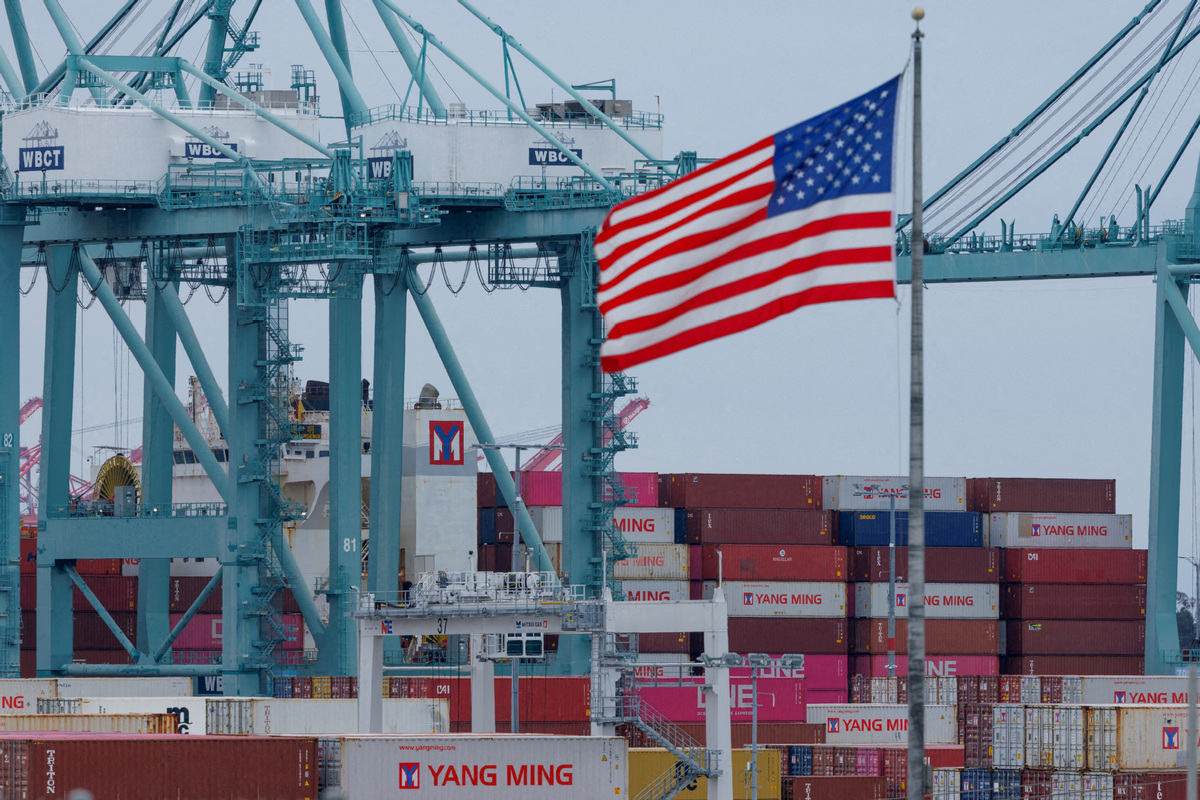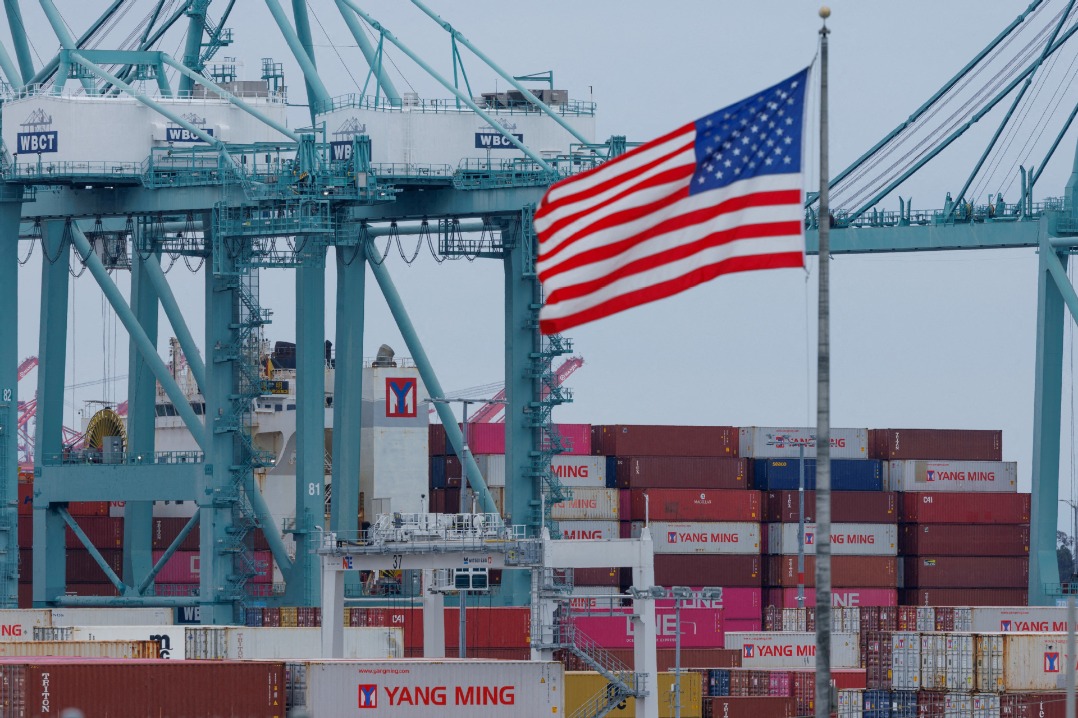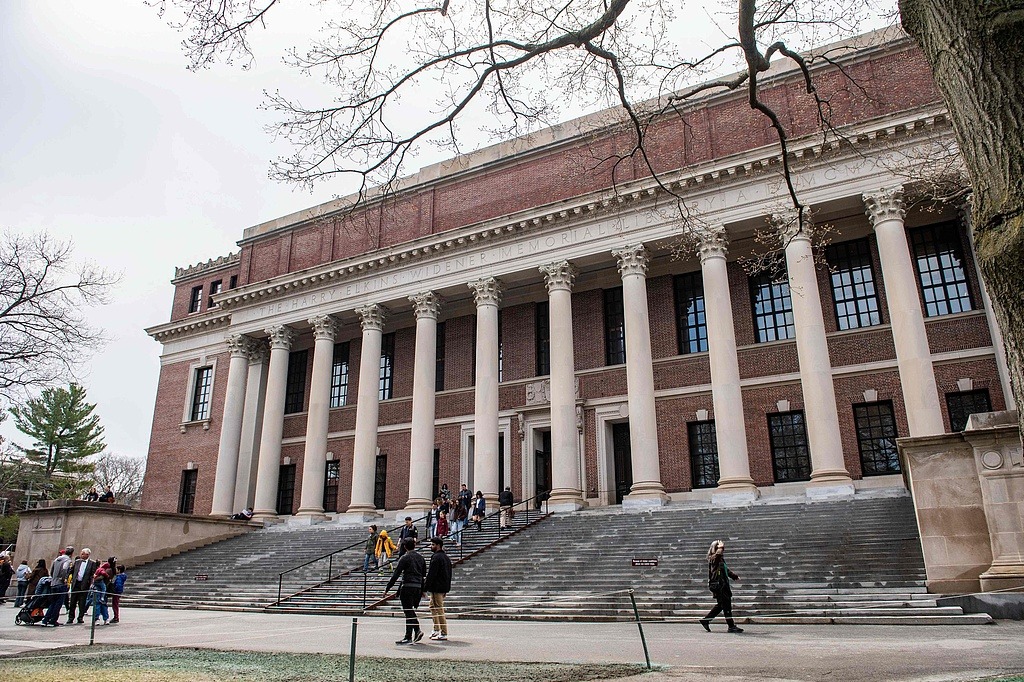Washington's trade barriers begin to bite economy


The signs of strain in the US economy once again became apparent on Tuesday when the Organisation for Economic Co-operation and Development slashed the country's 2025 growth forecast to 1.6 percent from its March prediction of 2.2 percent.
This downgrade followed revised figures released last week by the US Department of Commerce that showed the United States economy contracted at an annualized rate of 0.2 percent in the first quarter of 2025 — a first since 2022.
Experts attributed the economic slowdown to the US administration's unpredictable tariff policies that have been driving up costs and dampening the country's economic outlook.
Alvaro Pereira, OECD's chief economist, wrote in a commentary: "We have seen a significant increase in trade barriers as well as in economic and trade policy uncertainty."
Since April, the US administration has escalated tariffs targeting its major trade partners, disrupting global supply chains.
Tariffs, or taxes on imported goods, are paid by US companies and often passed on to consumers, economists said. "It increases household financial burdens and decreases corporate profits," said Zhang Xinyu, an associate professor of industrial economics at Liaoning University.
"Tariffs raise costs, reduce consumer purchasing power, and limit business investment, thus slowing economic growth," she told China Daily.
Frequent policy shifts, including a 90-day pause on some tariffs announced in April, "have heightened uncertainty, further weakening confidence", Zhang said.
"The tariff chaos is expected to weigh heavily on the economy. If the pause ends without solutions, more countries and regions are likely to respond with countermeasures, further amplifying the negative impact on the US economy," said Ke Jing, an associate researcher at the Shanghai Academy of Social Sciences.
Economic integration in other parts of the world is anticipated to "accelerate against this backdrop as countries tend to distance themselves from the United States", Ke told China Daily.
Last week, the US Department of Commerce's Bureau of Economic Analysis revised the first quarter's economic data from its initial estimate of 0.3 percent annualized contraction to a 0.2 percent decrease, driven partly by companies stockpiling imports to avoid upcoming tariffs.
The annualized rate is a measurement of how economic indicators would change over a year if kept at current growth or decline rate.
Despite the slight upward revision, corporate profits fell sharply by $118.1 billion last quarter, compared to a $204.7 billion increase in the previous quarter, according to the BEA.
Consumer spending, which accounts for nearly 70 percent of US GDP, slowed to 1.2 percent in the first three months of the year, from 4 percent a quarter earlier, The Washington Post reported.
"Weak performance in consumer spending and declining corporate profits point to mounting pressure on the demand side," Ke said. "Some of the US policies have indeed undermined the fundamentals of the economy."
Another major drag on the GDP was the trade imbalance. Imports, which grew at 42.6 percent compared to the previous estimate of 41.3 percent, significantly outweighed exports, The Associated Press reported.
"Trade deficits reduce GDP. With tariffs looming, companies rushed to import large volumes of goods in advance. This led to a surge in imports and in turn dragged down GDP growth," Zhang of Liaoning University said.
In the latest instance of its tariff assaults, the US administration decided to raise duties on steel and aluminum imports from 25 percent to 50 percent, with the higher tariff going into effect on Wednesday.
"Constant policy changes have dampened expectations and the tariffs are causing more harm than good (for the US)," Zhang said.
Mehmood Ul Hassan Khan, executive director of the Center for South Asia and International Studies in Islamabad, said the US economy is entangled in serious debt, raising fears of budgetary and fiscal deficits.
"?The figures serve as a wake-up call for US policymakers as they indicate a shrinking economy, slowing industries, high inflation and a drift toward recession because of the US' ongoing reckless trade and tariffs war with the world," he told China Daily.
"It is expected that the US and the world economy will further suffer if tariffs are not resolved," he added.
The US national debt has surpassed $36 trillion. With relatively high interest rates, "investors favor short-term US government bills over long-term bonds", Ke of the Shanghai Academy of Social Sciences said, adding that it will "push up long-term yields and strain federal finances".
"We cannot say if the US economy is already in a recession but the trend sends a signal that it is falling into trouble, as tariffs, debt and weak demand combine to raise concerns," Ke said.































